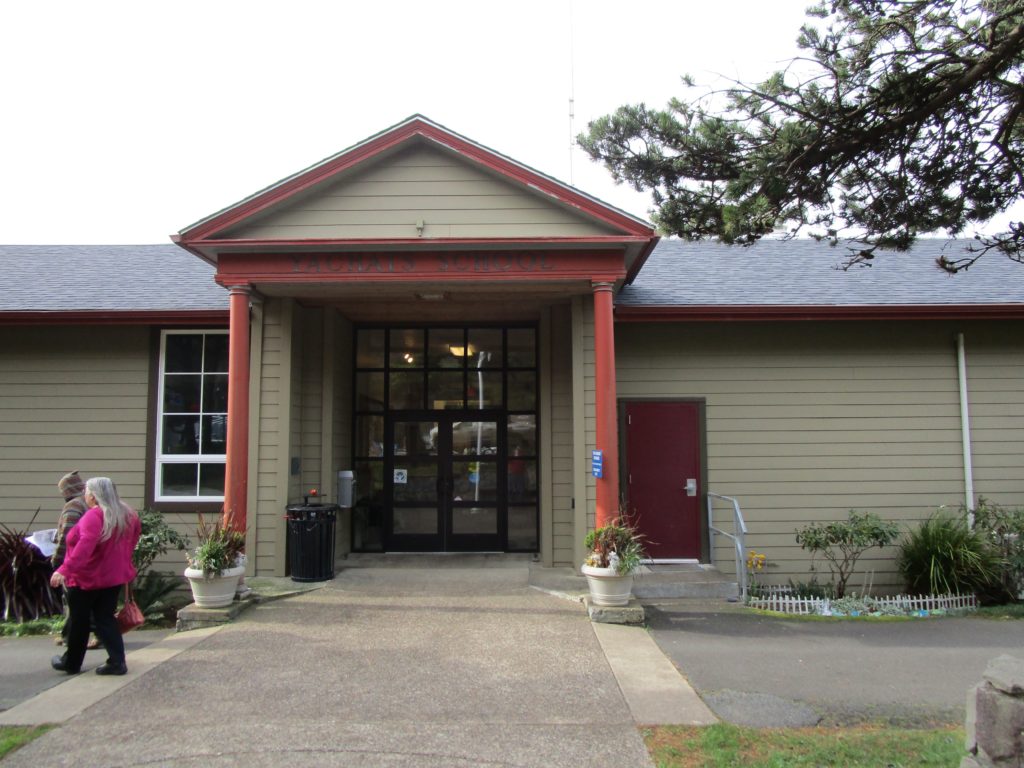
By QUINTON SMITH/YachatsNews.com
It took more than seven hours over two days of online meetings, but the Yachats Budget Committee last week finished work on the city’s proposed spending plan for the fiscal year that starts July 1.
But a 7-3 final vote to approve and a series of contentious discussions and occasional 5-5 votes on new and old issues indicates the City Council could face another debate on money issues when it meets June 17 to give its final OK.
The budget committee consists of five council members and five citizens. It met for three hours May 21 and again for four hours Thursday.
After discussing and voting on separate revenue projections and spending plans for everything from the city’s urban renewal district, to water services to Commons operations, Thursday the committee split on whether to change the budget before sending the 97-page document to the council. Voting no were City Councilor Leslie Vaaler and citizen members Brad Webb and Dawn Keller.
Discussions over the two days took place in the context of an estimated 50 percent drop in the three-year average of lodging taxes – an average of $985,000 a year collected from motels and vacation rentals that keeps Yachats’ property taxes low and funds the bulk of city operations. Some 61 percent of those taxes can be used for city operations; 39 percent must be used for tourism promotion and amenities.
The same decrease is expected for the city’s sales tax on food and beverage purchases, which are used exclusively to help pay loans on the wastewater treatment plant.
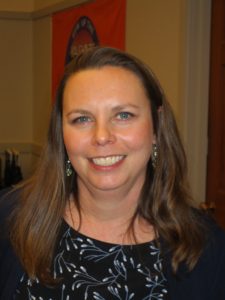
The $1.35 million city operating budget put together by City Manager Shannon Beaucaire proposed adding two employees if revenues recover later in the budget year and continues $190,000 a year to pay contractors to provide other services.
Overall revenue for the general fund is expected to decrease by $218,000 in 2020-21.
The budget proposes to pay for increased personnel, rising costs and to maintain existing services by reducing the city’s savings account – called beginning balances — by $200,000, so that $629,000 is left for the start of the 2021-22 fiscal year.
The beginning balance for general city operations had grown to $829,000 this fiscal year from $436,000 in 2018-19 and $272,000 in 2017-18.
It also proposes to use more money in 2020-21 by not transferring $192,000 from its general fund into operational and reserve funds for future projects involving everything from the Commons and library to streets and storm drains.
And, as the budget committee moved through proposals for capital expenditures on everything from trails to the library expansion to streets, it asked for the community to again debate whether it should spend $300,000 to rebuild the Little Log Church.
Here are highlights and themes from the seven hours of budget discussion:
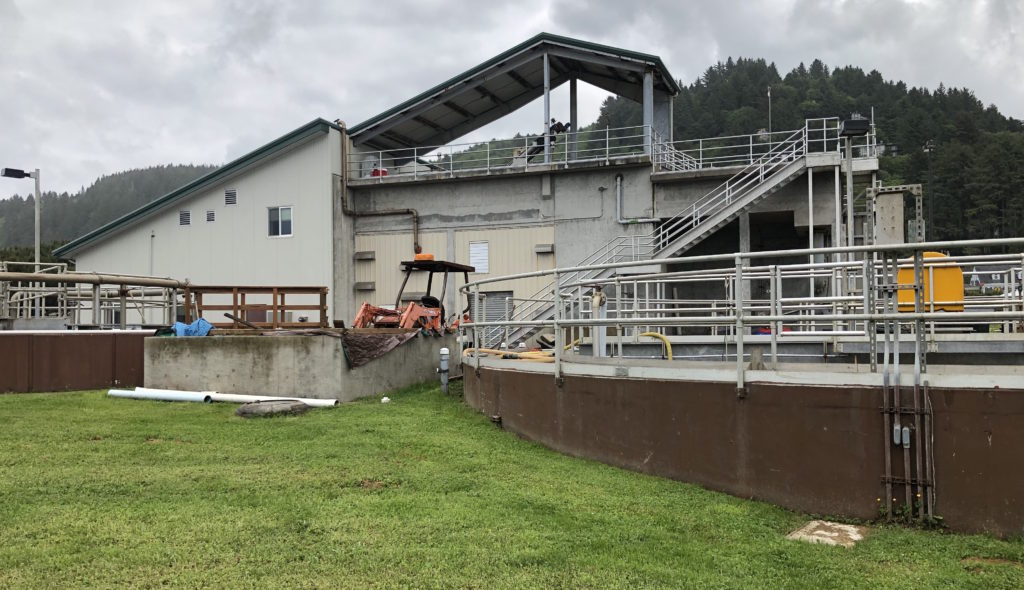
New personnel when revenues increase
Beaucaire proposed hiring three people, two of them “when economically feasible” and the third using lodging taxes set aside for tourism promotions.
One proposed hire – a public works manager – received little comment when the committee discussed water and sewer operating budgets May 21. Other than a sentence under council goals to complete organizational work, there was no additional narrative in the budget document of why he or she was needed, what they would do, or how the person would improve operations – and no committee members asked.
The Yachats City Council went away from a series of public works managers after a personnel study in 2015, which recommended moving to a city manager/council form of government and having the city manager oversee public works.
On Monday, Beaucaire told YachatsNews that the position is in a staff reorganization plan given to the council last year that included the community services and administrative assistant positions.
“I’m not trying to hire a bazillion people,” she said, “but put an organization plan into place that provides great services.”
Last year the City Council approved two new office positions — a community services coordinator to handle many of the duties now done by the city’s contracted facilities director, and an office administrative assistant. The community services coordinator is expected to be chosen soon.
Beaucaire said the public works manager and the administrative assistant in the new budget would only be hired when the city’s revenues pick up — a steady rise in water revenue from higher use, and increases in quarterly lodging and food taxes.
Overall Beaucaire said, the proposed budget has a 15 percent increase in labor costs, accounting for raises and cost of living increases included in union contracts, the cost of benefits and retirement contributions.
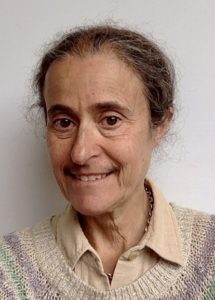
Vaaler and Webb pushed back on those; Vaaler saying the “tremendous increases” in personnel costs needed to be trimmed, especially as revenues decline.
Labor increases proposed for the water and sewer departments totaled $135,000, which included the potential new manager and a 15 percent increase in across-the-board labor costs for existing street and water personnel. Vaaler questioned hiring in general and Webb said he opposed the public works hire.
Beaucaire countered that the new employees would be added only when the city could afford to and that even during the coronavirus pandemic “there are increasing demands for services” by Yachats residents.
But the new hires also brought out a longer and sometimes contentious discussion of why spending on contracted services was staying at $190,000 next year, especially if the $38,000 for a contract facilities director is replaced by an employee.
The city also contracts out for all its computer and technical help, for record keeping of all meetings, finances, planning, code enforcement, legal, janitorial and maintenance expenses.
Beaucaire said legal costs when the city consults its attorney are increasing, as are internet-related expenses and cyber security requirements. Janitorial costs are expected to increase significantly once the city reopens buildings and has to change its cleaning practices.
Committee members asked to have those broken out by individual contracts in next year’s budget proposal.
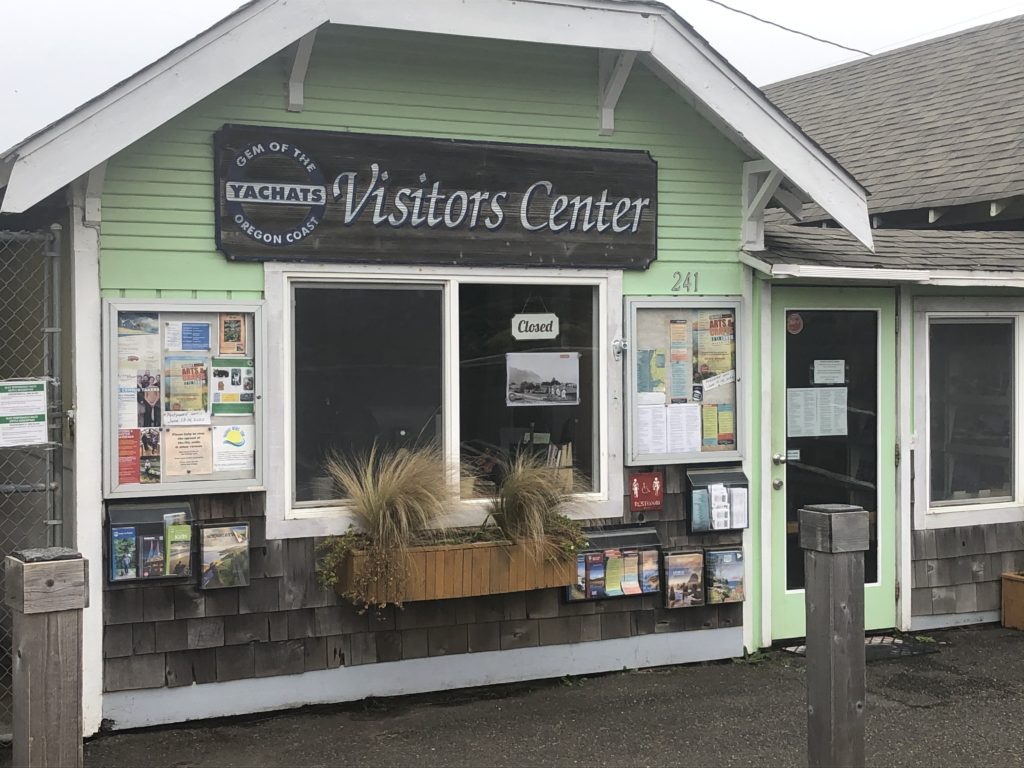
Marketing and the visitor center
There was also extensive discussion on a budget proposal to use $50,000 in lodging taxes to hire a city marketing director and move $30,000 from the marketing budget of the Yachats Visitors Center back to the city for a renewed marketing campaign.
Beaucaire told the committee that the position is separate from the city’s $65,000 funding for operating the visitors center, that some businesses had asked for a greater effort to safely attract visitors following the coronavirus shutdown, and that there had been some general dissatisfaction with the center’s marketing efforts.
The city has done this before, she said, hiring a marketing director after the 2008 recession to help tourism recover.
The visitor center contract, now held by the Yachats Chamber of Commerce, is currently out for bid.
Councilor Mary Ellen O’Shaughnessey wondered if it was the right time to add the marketing employee and if it might be more effective to increase the visitor center’s marketing budget instead, especially if there is a new operator.
But a motion to cut the position from the budget and move the marketing funds to the visitor center failed on a 5-5 vote.
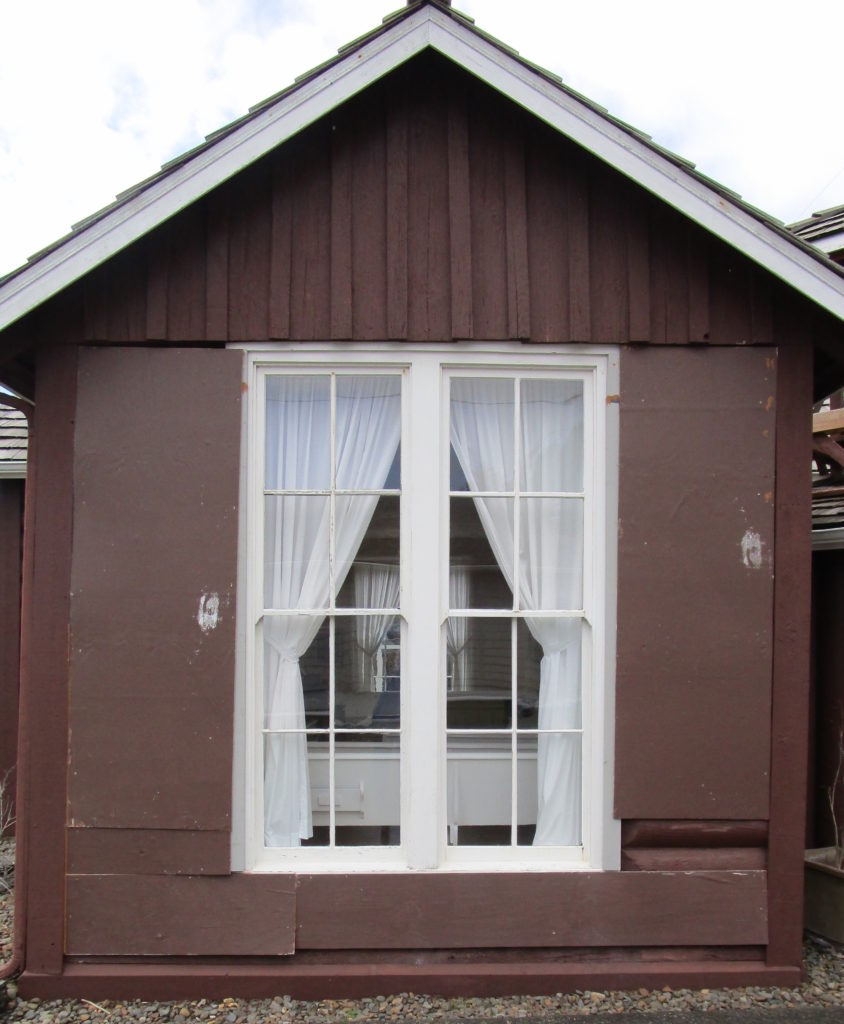
Little Log Church, again
What to do with the city-owned Little Log Church and Museum flared again during the committee’s discussion of again budgeting $150,000 of the estimated $300,000 needed to replace the deteriorating church portion of the structure.
This debate has flared each of the last three years – is the church worth replacing with a replica, why does it cost so much, and can the Friends of the Little Log Church contribute substantially to the project.
Following a similar debate last year, the city asked the Friends group to change its nonprofit status and gave it a goal of raising $100,000. But so far it has been able to only raise $10,000.
Some committee members said even if the city allocates $150,000 from capital reserves for the project, there is little likelihood of the project beginning this year.
Vaaler, O’Shaughnessey and Councilor Jim Tooke said given the apparent lack of community support and declining revenues, the city should take the money out of the budget until there’s another community debate on the issue. Citizen members Keller and Lance Bloch agreed.
“It’s an enormous expense,” Tooke said. “I don’t know if it is something the city should be doing at this time.”
Mayor John Moore and Councilor Max Glenn said the budget item is only a “placeholder” to help the city or nonprofit group apply for grants.
“It would be inappropriate to walk away from it at this moment,” Moore said.
But everyone seemed to agree that it needed to set a specific goal and timeline for fundraising or grants, and that the community needs to re-visit whether there is enough support to justify rebuild the church.
That goal and timeline, said committee member John Purcell would see “if the community can demonstrate its financial support as well as its emotional support.”
Ultimately the committee approved the appropriation on a 9-1 vote, but told the Parks and Commons Commission to give the Friends group a firm fundraising goal and deadline.
Other budget notes:
- The committee urged public works to get moving on a project to build a pole building at the wastewater treatment plant that has been budgeted for two years and to purchase a newer vacuum truck that has been on the books for three years.
- Approved spending $75,000 in capital reserves to go with a $91,500 federal grant to remodel the 501 Building for city offices.
- Approved $50,000 from capital reserves to help start a boardwalk project for the section of the 804 Trail on Ocean View Drive above the Yachats River.
- Reduced proposed spending on city beautification projects from $25,000 to $17,850.




It’s a well-known fact that Airbnb, VRBO and other platforms for vacation rentals do wonderful advertising for the vacation rentals that are allowed. Along with the terrific hotels and motels advertising and the impeccable reputation of Yachats as a destination, why then does the city of Yachats feel compelled to limit vacation rentals and the city manager want to pour money into advertising? Yachats markets itself. People need places to stay.